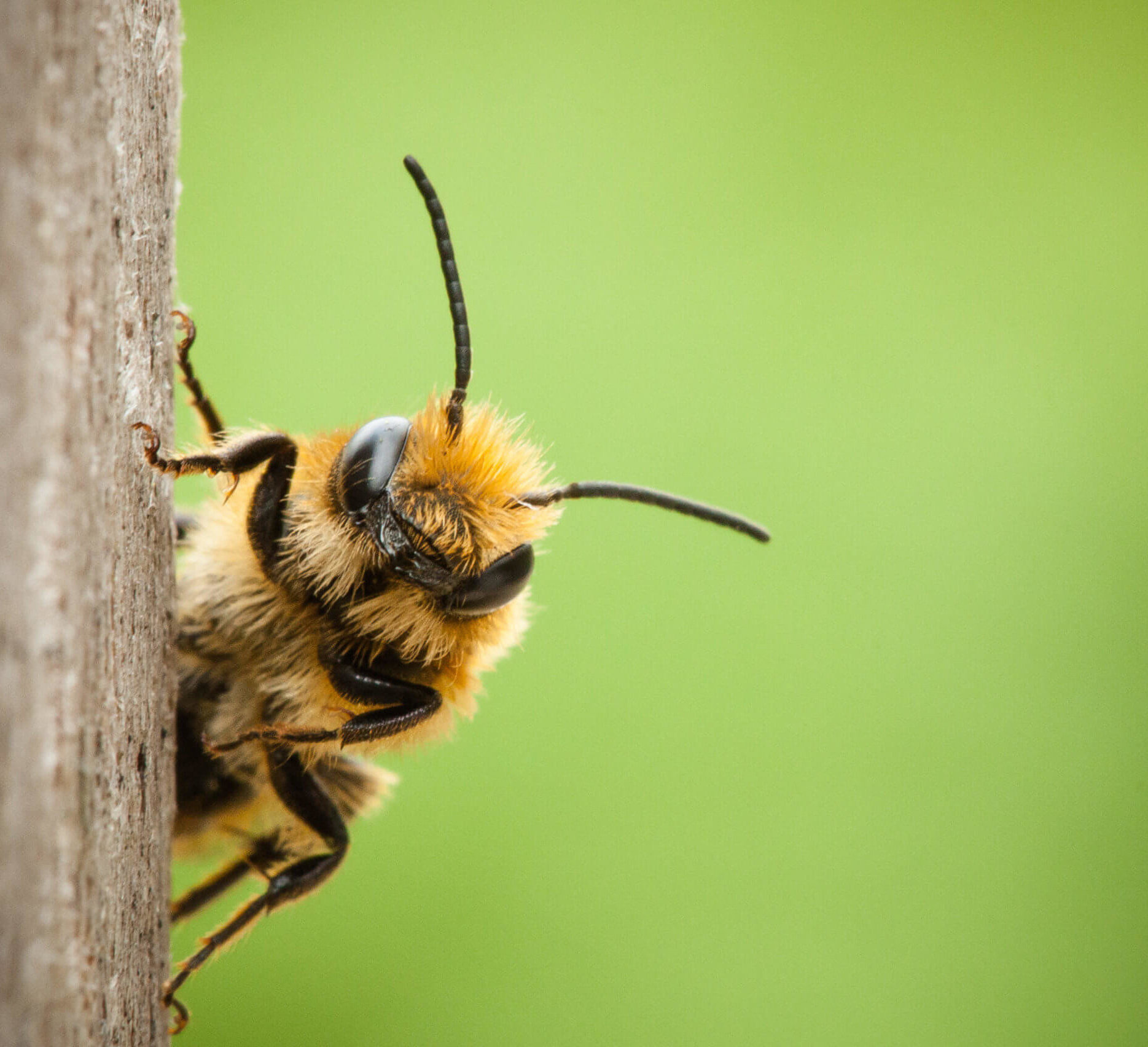Protecting Bees, Building Habitat, and Strengthening Communities Together
A Community-Driven Approach to Pollinator Conservation
Bees lie at the heart of our survival. They pollinate 1 in 3 bites of food we eat and 80% of the world’s flowering plants. These precious pollinators are essential to the health and prosperity of countless ecosystems.
However, bees are in peril. According to the Center for Biological Diversity, more than half of North America’s 4,000 native bee species are in decline, with 1 in 4 species at risk of extinction. This is due to a range of factors including habitat loss, pesticide use, climate change, and pests and disease.
The Bee Conservancy’s mission is to protect all bees and foster thriving ecosystems through community-based education, habitat creation, research, and advocacy in urban and underserved areas. For more than 15 years, we have partnered with community groups, schools, foundations, and corporate teams to reach thousands of people across the country each year, promoting environmental equity and a more inclusive and diverse sustainability movement.

Bee Species on Planet Earth
And only about 8 of them are honey bees! About 70% of bees live underground, while the remainder live in cavities and holes.

Species Are at Risk of Extinction
According to the Center for Biological Diversity, more than half of North America’s 4,000 native bee species are in decline, with 1 in 4 species at risk of extinction.

Bites of Food Pollinated by Bees
Bees are an essential part of our agriculture, pollinating many fruits, nuts, and vegetables. Their health directly impacts food security.
Creating Habitat for Bees and Pollinators
Land development, pesticide use, and the prevalence of invasive, non-native, and genetically modified plants are just some of the factors that degrade food and shelter for bees.
Our habitat development work focuses on creating perennial, pollinator-friendly, native plant gardens in a range of urban and industrial landscapes. This vital work not only provides essential food, shelter, and nesting sites for bees, but also bolsters biodiversity, transforms land management practices, and arms growers with sustainable strategies.

The 9-11 Memorial Garden at Port Newark, with steel from the World Trade Center. Planted with perennial natives.
Why Bees?
Inside Our Story
The Bee Conservancy strives to be a better world for bees and communities everywhere.
Take a peek at our World Bee Day video (celebrated every May 20) to learn more about why we started this organization, the impact of bees on our daily lives and ecosystems, and the challenges bees face today.
